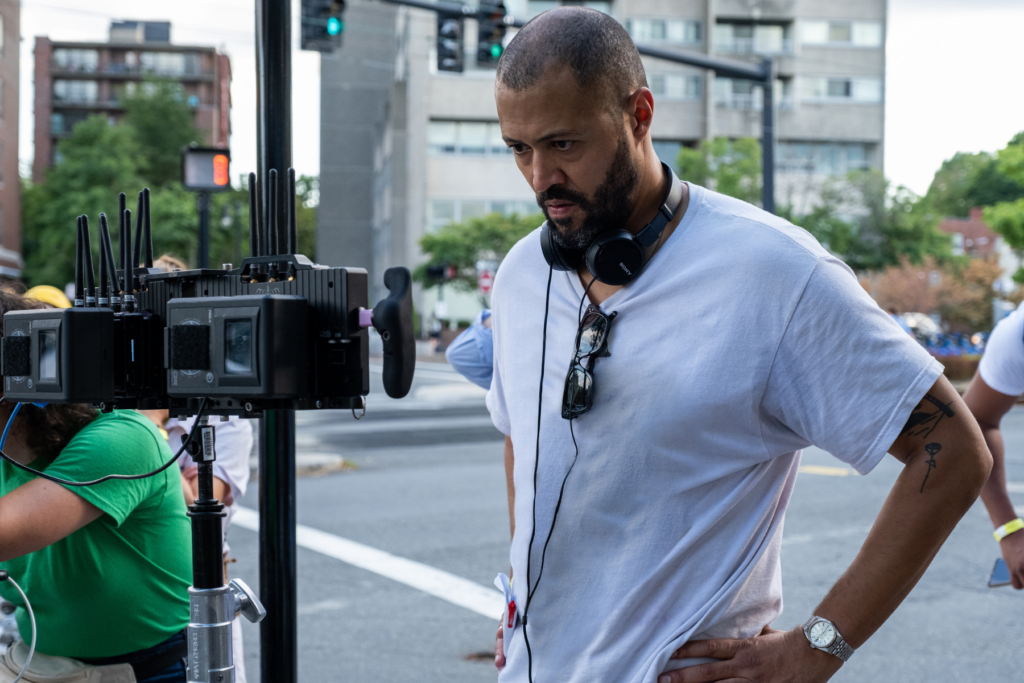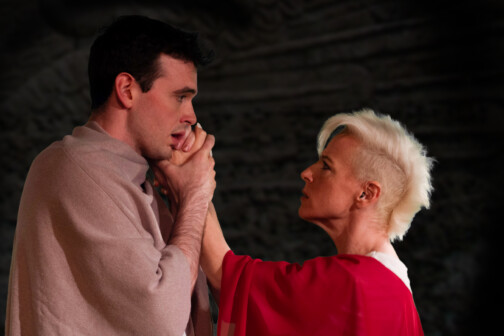“There’s a lot of me in Monk,” says rookie filmmaker Cord Jefferson about the protagonist in American Fiction, a satirical look at the fascination of American culture with Black trauma.
Jefferson is a former journalist and Emmy-winning television writer best known for his work on Watchmen and The Good Place. But his deeply personal feature debut, adapted from a 2001 novel by Percival Everett, is a provocative examination of perceptions and representation in the literary world that playfully tweaks stereotypes while revealing uncomfortable truths about bias and appropriation.
More specifically, it explores how art appreciation is often filtered through a lens of guilt and forced compassion, theorizing that it’s not progress when you have to pander to appease the masses.
The story follows Thelonius “Monk” Ellison (Jeffrey Wright), a frustrated Black novelist and college professor at a personal and professional crossroads. He reluctantly relocates across the country to spend time with his sister (Tracee Ellis Ross) and aging mother (Leslie Uggams). Along the way, he’s forced to confront feelings of grief and isolation that exacerbate his abrasive disposition.
Then he becomes infuriated upon hearing an author (Issa Rae) read from a novel overflowing with tropes about “the Black experience” that draws praise predominantly from White critics and readers. Monk reactively adopts a pen name and persona as a streetwise ex-con whose book, littered with cliches and vulgarities, will become a hit, at which point he can expose everyone’s hypocrisy. Naturally, the scheme backfires, leaving Monk in a precarious moral position.
American Fiction opens Jan. 5 in Dallas. Jefferson shared his thoughts on the broader appeal of the film following its Texas premiere at the recent Austin Film Festival. The interview has been edited for length and clarity.
Jeffrey Wright is one of these actors who makes everything he’s in better, but he rarely gets a role of this caliber. Why was he right for Monk? He’s been a guy who I’ve always had my eye on. I would always be surprised that he wasn’t in more movies or shows as the lead. Every time he was on screen, I couldn’t take my eyes off him. Everybody knew fundamentally that he was this incredible actor. I was excited to put him front and center because he deserves this. It’s been too long since he’s had a role this meaty, that he could dive into in this way.
Talk about shaping Monk’s character in your own voice. In the book he’s a little more acerbic and has some sharper edges than he does in the movie. It’s a little bit harder to walk that tightrope on the big screen and get people to root for you while being a prickly jerk. I wrote him to be a little bit softer, but the real magic came when Jeffrey came in with his portrayal. He was nailing the tone I was going for. It’s a difficult line to walk to be a lovable grump.
In putting your own stamp on Monk, did you sympathize with him ideologically? What was your connection? I was reading this book during a time of great change in my life. I started in 2010 to really work on myself and work on a lot of the emotional issues that I was going through. I had become this guy who was really isolated from the world. I wasn’t really open emotionally, I wouldn’t allow myself to be vulnerable, and I pushed people away. Monk was kind of me a couple of years prior. Because of the anger and the pain he was feeling, he had become an island and grown distant from everybody. When I saw that, I recognized that immediately. It was a character I understood deep in my bones.
It connects to you in 2010, but it’s also very much a film about the dysfunctional public discourse of today, especially as it relates to art and literary appreciation and perception. That’s tricky territory to navigate. The issues that it brings up are still as relevant as ever, which is slightly disappointing. I understand the issues of race and identity and sexuality and class. All of these things are serious subjects with serious consequences. But I wanted to break away from that and make something that felt very inviting to people regardless of what their beliefs were going into the film — all races and ages and colors and classes. I wanted to make a film that felt like anybody could go in and see a little bit of themselves in there and empathize with the character and laugh a little. One thing that we have a difficult time doing these days is finding ways to laugh at ourselves and our flaws and the problems that we have in this country. People are so tense and afraid of saying the wrong thing and being vulnerable. I wanted to make something that offered a pressure release. I wanted to have these conversations in a way that felt a little less dangerous and caustic. We don’t have to speak only in our own corners and our own echo chambers.
Everybody is a target of the satire. There’s a certain rapport in that, saying that we’re all flawed and at fault. How did you find the deeper emotion in the material? I didn’t want to browbeat anybody or shame anybody. We all make mistakes and we’re all flawed. Let’s acknowledge that and laugh at the absurdity of it. I wanted to make a movie that was satirical without being farcical. Even if you came into the film and don’t empathize with his professional struggles, hopefully you can come in and see that warmth in the family story. You could recognize the issues with his siblings and parents. Maybe these are people different from you who have the exact same struggles and problems.
Author







